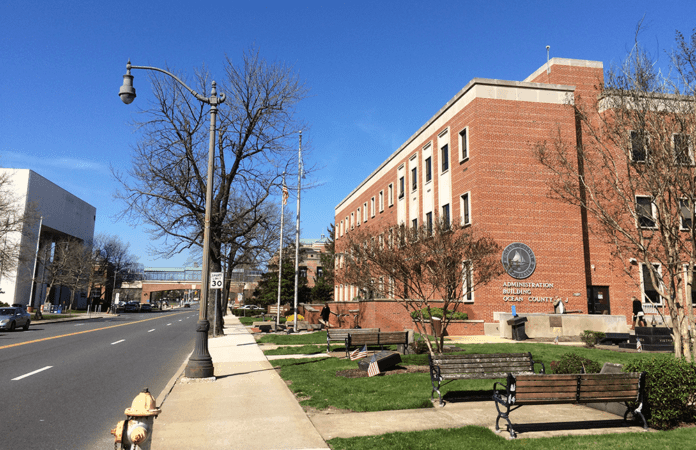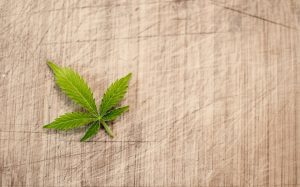
OCEAN COUNTY – When it comes to recreational pot, the freeholders are going to side with the Feds, not the new governor.
The freeholders passed a resolution at their Feb. 7 meeting opposing any state law which might allow for the use and sale of recreational marijuana.
Berkeley Township and Point Pleasant Beach have proactively banned such sales, with other towns considering such bans.
Eight states—Washington, Oregon, California, Colorado, Alaska, Nevada, Maine and Massachusetts—and Washington, D.C. have legalized recreational marijuana. However, the Federal Controlled Substances Act of 1970 is still the law of the land, and bans the possession, use, purchase, sale or cultivation of cannabis for recreational use.
Freeholder Virginia Haines found it ironic that a government that has spent billions on anti-smoking campaigns over the decades, with a health-care system burdened by smoking-related illnesses and deaths, would even consider legalizing recreational marijuana.
The National Institute on Drug Abuse (drugabuse.gov) does report that marijuana has short- and long-term consequences, both physical and mental, especially with sustained use and high doses. Some problems, such as breathing issues and increased heart rate, mimic the effects of cigarette smoke. Marijuana, along with alcohol and tobacco, are considered gateway drugs.
“Now the governor of the State of New Jersey wants to allow people to smoke marijuana. If this isn’t the complete opposite of what we’ve been talking about for 30-35 years, especially to young people not to smoke. My father died from smoking, so I know exactly what that disease can do to the lungs,” Haines said. “It’s just very ironic that all [Murphy] has cared about is the money it is going to bring in.”
The Economy Of Legalization
The Medical Marijuana Program Directory (mmpdirectory.com) pointed to Colorado’s economic growth since legalizing pot in 2014. According to MMP, which has a page dedicated to five reasons why New Jersey should legalize marijuana, “the total revenue from taxes, licenses, and fees increased 77% from calendar year 2014 to 2015, going from $76,152,468 up to $135,100,465.”
Different reports say legalizing marijuana could add $1.3 billion to NJ’s economy, although Murphy has not said how that additional revenue would be spent.
But not so fast, Freeholder John Bartlett Jr. said.
Besides questioning how law enforcement can determine an impaired state, he asked how Murphy thinks the state will see revenue.
“What makes even less sense is the proposition that the state may gain $300 million in tax revenues from taxing it. That’s preposterous. Do you know why,” Bartlett asked. “Because this has to be a cash economy, because it is federally illegal. A business selling marijuana in New Jersey cannot deposit that money in a bank. So, if you can’t deposit it in a bank, you can’t write a check. And if it’s cash, it never sees the books.
“So how in the heck is the State going to collect tax revenues on a cash economy, which no one knows exactly what it is,” Bartlett said.
A New York Times Magazine feature from Jan. 4, 2018, “Where Pot Entrepreneurs Go When the Banks Just Say No,” showed how one Denver marijuana business owner solved this problem: Safe Harbor Private Banking, a division of Partner Colorado Credit Union in the Denver suburb of Arvada, provides checking accounts to marijuana businesses. They are operating in clear violation of federal law, the article makes clear.
According to NYT Magazine writer Robb Mandelbaum, clients deposited $931 million in 2017, the most of any bank or credit union willing to defy federal law and provide accounts to marijuana businesses.
The article did not touch upon how revenues were or could be collected from such businesses.

How The Feds See Pot
Marijuana is listed as a Schedule I drug, along with heroin, LSD, ecstasy, methaqualone and peyote. Despite petitions brought to the federal Drug Enforcement Administration to reclassify cannabis, in 2016 the Administration refused to move it from Schedule I.
“A substance is placed in Schedule I if it has no currently accepted medical use in treatment in the United States, a lack of accepted safety for use under medical supervision, and a high potential for abuse. These criteria are set by statute,” Chuck Rosenberg, then DEA acting administrator, wrote in an Aug. 11, 2016 letter to Gov. Gina M. Raimondo of Rhode Island, Gov. Jay R. Inslee of Washington State, and Bryan A. Krumm, a Psychiatric Nurse Practitioner at Sage Neuroscience Center in Albuquerque, New Mexico. “Schedule I includes some substances that are exceptionally dangerous and some that are less dangerous (including marijuana, which is less dangerous than some substances in other schedules). That strikes some people as odd, but the criteria for inclusion in Schedule I is not relative danger.”
Rosenberg further stated that legitimate or “meritorious” research into any benefits derived from cannabis has been supported by government agencies.
Freeholder Gerry Little noted that it is a Schedule 1 drug during his Feb. 7 comments, which were widely mocked by other media outlets, misinterpreting his statement that cocaine was less addictive than marijuana. Cocaine is a Schedule II substance.
“My Feb. 7 comment comparing cocaine (an FDA Schedule II Drug) as less addictive than marijuana (An FDA Schedule I Drug) was inaccurate,” Little said in a clarification to the media Feb. 9. “The Federal Drug Administration (FDA) and the Federal Drug Enforcement Administration (FDEA) define both Schedule I and Schedule II controlled substances as drugs that have a high potential for abuse and potential for psychological and/or physical dependence. However, the FDA and the FDEA make no specific reference about the addiction potential between Schedule I and Schedule II controlled substances.
“My comment was unclear and I regret the confusion,” Little concluded.
Democrat Gov. Phil Murphy spoke on the campaign trail of legalizing recreational pot use. A bill sponsored by state senator Nicholas Scutari (D-22) would allow for the “taxing, controlling and legalizing marijuana like alcohol for adults.” The bill is currently in review for the 2018 session, but few politicians on either side of the state’s political aisle have expressed support for pot legalization.
For Medicinal Use
No freeholder spoke against marijuana for medicinal use. Murphy signed an executive order Jan. 23 “directing the New Jersey Department of Health and the Board of Medical Examiners to review the state’s existing medical marijuana program. The goal of the review is to eliminate barriers to access for patients who suffer from illnesses that could be treated with medical marijuana,” press secretary Daniel Bryan wrote.






